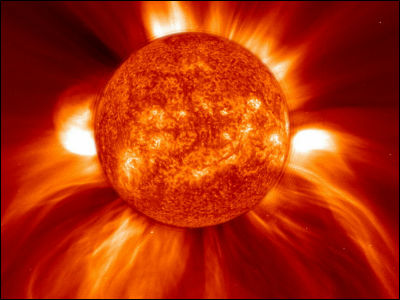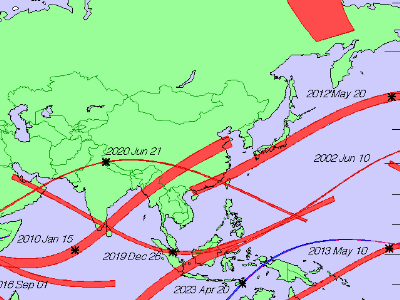Three things you should not do during a total solar eclipse

On April 9, 2024,
Three Things You Must Not Do This Total Solar Eclipse: ScienceAlert
https://www.sciencealert.com/three-things-you-must-not-do-this-total-solar-eclipse

Don't expose your retina to sunlight
The light-sensitive cells lining the eye, along with the lens and pupil, focus the light from the scene reflected in the pupil and convert it into nerve impulses that we interpret as vision. But too much light can throw these cells off.
Basically, the human eye recovers quickly even if it is disrupted by exposure to strong light, but if you look directly at sunlight, a laser beam, or light amplified by a magnifying glass, the nerve tissue will be damaged by the heat. This damaged nerve tissue cannot recover naturally, so it must be restored by artificial means such as surgery.
For this reason, Science Alert recommends using '

Don't drive during a solar eclipse
A research team led by Donald Redelmeyer of the University of Toronto and John Staples of the University of British Columbia investigated statistics on traffic fatalities during

Science Alert points out that the reason for the increase in accidents is that 'drivers may have become distracted while driving on the highway in search of the best place to observe the total solar eclipse.' Therefore, if you really want to observe it directly, we recommend that you visit the best position early or observe it on a live stream from a safe indoor location. Science Alert also says, 'If you have to drive during the solar eclipse, do not overdo it.'
Don't create your own scientific myths
There is no doubt that a solar eclipse is a great opportunity to learn about the universe and the workings of the Earth on a deeper level. In fact, it has been discovered that clouds disappear during a solar eclipse, and Einstein's theory of
On the other hand, 19th century American astronomers Charles Augustus Young and William Harkness proposed that the ' corona ' visible to the naked eye during a solar eclipse was created by a new element called ' coronium .' However, subsequent research has confirmed that the corona is a plasma formed when hydrogen atoms are broken down into atomic nuclei and electrons.
In 1605, German mathematician Johannes Kepler asserted that the light of the corona that appears to surround the Moon during a solar eclipse is simply sunlight refracted by the Moon's atmosphere, but this hypothesis was not true, since the Moon has no atmosphere.

In light of these precedents, Science Alert advises, 'We are not saying you shouldn't do scientific research on solar eclipses, but if you see an unusual astronomical event like a solar eclipse, be sure to double-check your research and calculations.'
◆ Forum is currently open
A forum related to this article has been set up on the official GIGAZINE Discord server . Anyone can post freely, so please feel free to comment! If you do not have a Discord account, please refer to the account creation procedure explanation article to create an account!
• Discord | 'Have you ever observed a solar eclipse or a total solar eclipse?' | GIGAZINE
https://discord.com/channels/1037961069903216680/1227181079472115713
Related Posts:
in Science, Posted by log1r_ut







